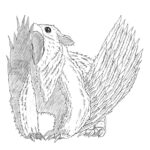Are you tired of pesky flies buzzing around your home and outdoor spaces? What Repels Flies Naturally is a question many homeowners ask, and flyermedia.net has the answers you need for fly control. This comprehensive guide explores effective natural methods to keep these annoying insects away, creating a more enjoyable and pest-free environment. Discover practical tips and tricks to achieve a fly-free zone.
1. Why Are Flies Attracted to Your Home?
Understanding what attracts flies is the first step in effective fly control.
1.1. Common Attractants
Flies are drawn to several things commonly found around homes. According to the National Pest Management Association, flies are attracted to decaying organic matter, sugary substances, and standing water. Food spills, unsealed garbage, pet waste, and even compost piles can become breeding grounds for flies.
1.2. Identifying Problem Areas
Pinpointing the areas where flies are most prevalent can help you focus your efforts. Check kitchens, bathrooms, and outdoor areas such as patios and gardens. Ensuring these spots are clean and free from potential attractants can significantly reduce fly populations.
1.3. The Role of Environment
The environment surrounding your home also plays a role. For instance, homes near farms or wooded areas may experience higher fly activity. Understanding these environmental factors can inform your fly control strategies. According to a study by the University of California, Davis, rural and agricultural areas often see increased fly populations due to the abundance of breeding sites.
2. Preventative Measures: The First Line of Defense
Prevention is always better than cure. Taking simple steps to prevent flies from entering your home can save you a lot of trouble.
2.1. Maintaining Cleanliness
Regular cleaning is crucial. Wipe up spills immediately, clean food preparation areas thoroughly, and ensure your garbage bins are sealed tightly. The Environmental Protection Agency (EPA) recommends cleaning your garbage cans regularly with soap and water to eliminate odors that attract flies.
2.2. Proper Waste Management
Effective waste management is essential. Always use garbage bags and ensure your bins are emptied regularly. Consider using bins with tight-fitting lids to prevent flies from accessing the waste. Compost piles should be located away from your home and properly managed to minimize odors.
2.3. Sealing Entry Points
Inspect your home for potential entry points such as cracks in walls, gaps around windows and doors, and damaged screens. Seal these openings to prevent flies from getting inside. The Department of Energy estimates that sealing air leaks can reduce energy costs by up to 20% while also keeping pests out.
2.4. Strategic Landscaping
Landscaping can also play a role in fly prevention. Avoid overwatering your lawn and garden, as standing water can attract flies. Keep grass mowed and remove any decaying vegetation. Planting fly-repelling plants can also help create a natural barrier.
3. Natural Fly Repellents: Harnessing the Power of Nature
Many natural substances can effectively repel flies without the use of harmful chemicals.
3.1. Essential Oils
What essential oils repel flies? Several essential oils are known for their fly-repelling properties.
3.1.1. Lavender Oil
Lavender oil is a popular choice due to its pleasant scent and insect-repelling properties. Place a few drops of lavender oil on cotton balls and place them around your home, or use a diffuser to spread the scent. A study published in the Journal of Economic Entomology found that lavender oil is effective in repelling houseflies.
3.1.2. Peppermint Oil
Peppermint oil has a strong scent that flies dislike. Mix a few drops of peppermint oil with water in a spray bottle and spray around windows, doors, and other entry points. According to research from Iowa State University, peppermint oil is a potent repellent for various insects, including flies.
3.1.3. Eucalyptus Oil
Eucalyptus oil is another effective fly repellent. Its strong, medicinal scent is unpleasant to flies. Use it in a diffuser, or mix it with water and spray around your home. The Australian government’s Department of Health recommends eucalyptus oil as a natural insect repellent.
3.1.4. Citronella Oil
Citronella oil is widely known for its mosquito-repelling properties, but it also works on flies. Burn citronella candles or use a diffuser to keep flies away. The University of Florida’s Entomology and Nematology Department confirms that citronella oil is effective in repelling a variety of insects, including flies.
3.2. Herbs and Plants
Certain herbs and plants naturally repel flies.
3.2.1. Basil
Basil is a versatile herb that repels flies. Place basil plants near doors and windows, or grow them in your garden. Basil contains compounds that are toxic to flies, making it an effective natural repellent.
3.2.2. Mint
Mint, particularly peppermint, is excellent for repelling flies. Grow mint in pots around your home, or place dried mint leaves in sachets. Mint’s strong scent deters flies and other insects.
3.2.3. Rosemary
Rosemary is another herb that flies dislike. Plant rosemary bushes in your garden or place rosemary sprigs indoors. Rosemary is easy to grow and provides a pleasant scent for humans while repelling flies.
3.2.4. Marigolds
Marigolds are not only beautiful but also effective fly repellents. Plant marigolds around your garden and patio to keep flies away. Marigolds emit a compound that deters flies and other pests.
3.3. Homemade Sprays
Creating your own fly repellent sprays can be a cost-effective and natural solution.
3.3.1. Vinegar Spray
Vinegar, especially apple cider vinegar, is a potent fly repellent. Mix equal parts vinegar and water in a spray bottle and spray around your home. Flies dislike the strong smell of vinegar and will avoid areas where it is sprayed.
3.3.2. Dish Soap and Water Spray
A simple mixture of dish soap and water can trap and kill flies. Fill a spray bottle with water and add a few drops of dish soap. Spray directly onto flies. The soap disrupts the fly’s outer coating, causing it to drown.
3.3.3. Cayenne Pepper Spray
Cayenne pepper can be used to create a fly repellent spray. Mix cayenne pepper with water and a few drops of dish soap in a spray bottle. Spray around areas where flies are common. The capsaicin in cayenne pepper irritates flies, causing them to leave the area.
3.4. Other Natural Repellents
Other natural substances can also help repel flies.
3.4.1. Cloves and Lemon
Place cloves in lemon halves and set them around your home. Flies dislike the strong scent of cloves and lemon. This method is not only effective but also adds a pleasant aroma to your home.
3.4.2. Apple Cider Vinegar Trap
Fill a jar with apple cider vinegar and cover it with plastic wrap. Poke a few holes in the plastic wrap. Flies will be attracted to the vinegar, enter the jar, and be unable to escape. This is a simple and effective way to trap flies.
3.4.3. Camphor
Burning camphor tablets can repel flies. Place camphor tablets in a heat-safe dish and light them. The smoke produced by the burning camphor will deter flies. Ensure the area is well-ventilated when using this method.
4. DIY Fly Traps: Creative Solutions for Fly Control
Creating your own fly traps can be a fun and effective way to reduce fly populations.
4.1. Sugar Water Trap
This is a simple and effective trap. Fill a jar with sugar water and add a few drops of dish soap. Cover the jar with plastic wrap and poke a few holes in the plastic. Flies will be attracted to the sugar water, enter the jar, and drown.
4.2. Fruit Fly Trap
Fruit flies are particularly attracted to ripe fruit. Place a piece of ripe fruit in a jar and cover it with plastic wrap. Poke a few small holes in the plastic. Fruit flies will enter the jar to get to the fruit and be unable to escape.
4.3. Sticky Fly Paper
Sticky fly paper is a classic method for trapping flies. Hang strips of sticky fly paper in areas where flies are common. Flies will be attracted to the paper and become stuck.
5. Professional Pest Control: When to Call the Experts
While natural methods and DIY traps can be effective, sometimes professional help is needed.
5.1. Identifying a Fly Infestation
Knowing when you have a fly infestation is crucial. Signs of an infestation include a large number of flies in your home, persistent fly activity, and finding fly larvae or pupae.
5.2. Benefits of Professional Services
Professional pest control services can provide a comprehensive solution to your fly problem. They have the expertise and tools to identify the source of the infestation and implement effective control measures. According to the National Pest Management Association, professional pest control is often the most effective way to eliminate a fly infestation.
5.3. Choosing a Pest Control Company
When choosing a pest control company, look for one with experience, a good reputation, and licensed technicians. Check online reviews and ask for references. Ensure the company uses safe and environmentally friendly methods.
6. Understanding Fly Species: Know Your Enemy
Identifying the type of fly you’re dealing with can help you tailor your control methods.
6.1. House Flies
House flies are the most common type of fly found in homes. They are attracted to garbage, food waste, and decaying organic matter. House flies can transmit diseases and contaminate food.
6.2. Fruit Flies
Fruit flies are small flies that are attracted to ripe and fermenting fruit. They are commonly found in kitchens and pantries. Fruit flies can be a nuisance, but they do not typically transmit diseases.
6.3. Drain Flies
Drain flies are small, dark-colored flies that breed in drains and sewers. They are attracted to moisture and organic matter. Drain flies can be a sign of poor sanitation.
6.4. Blow Flies
Blow flies are large, metallic-colored flies that are attracted to decaying meat and animal waste. They are commonly found near garbage cans and pet waste. Blow flies can transmit diseases and are a sign of unsanitary conditions.
7. The Role of Sanitation: Keeping Flies Away for Good
Good sanitation practices are essential for long-term fly control.
7.1. Regular Cleaning Schedules
Establish a regular cleaning schedule to prevent fly infestations. Clean your kitchen daily, empty garbage cans regularly, and clean up spills immediately.
7.2. Proper Food Storage
Store food properly to prevent attracting flies. Keep food in sealed containers and refrigerate perishable items. Avoid leaving food out on counters or tables.
7.3. Addressing Moisture Issues
Flies are attracted to moisture. Fix leaky pipes and faucets, and ensure your home is well-ventilated. Use dehumidifiers to reduce humidity levels.
7.4. Maintaining Outdoor Areas
Keep your outdoor areas clean to prevent flies from breeding. Remove pet waste, clear decaying vegetation, and empty standing water.
8. The Impact of Climate: Seasonal Fly Control
Climate plays a significant role in fly activity.
8.1. Summer Fly Control
Flies are most active in the summer due to warm temperatures and abundant breeding sites. Focus on preventative measures, natural repellents, and DIY traps during the summer months.
8.2. Winter Fly Control
Flies may become less active in the winter, but they can still be a nuisance. Continue to maintain cleanliness and seal entry points to prevent flies from overwintering in your home.
8.3. Spring and Fall Fly Control
Spring and fall are transition seasons for fly activity. Adjust your fly control strategies based on the weather and fly behavior. Focus on preventing breeding sites and using natural repellents.
9. Innovative Fly Control Technologies: What’s New in Fly Control
New technologies are constantly being developed to combat flies.
9.1. Electronic Fly Traps
Electronic fly traps use ultraviolet light to attract flies and then trap them on a sticky surface or electrocute them. These traps are effective and can be used indoors and outdoors.
9.2. Automatic Sprayers
Automatic sprayers release a mist of insecticide at regular intervals to kill flies. These sprayers can be used in homes, businesses, and agricultural settings.
9.3. Biological Control Methods
Biological control methods use natural predators or parasites to control fly populations. These methods are environmentally friendly and can be effective in certain situations.
10. Debunking Fly Control Myths: Separating Fact from Fiction
There are many myths about fly control.
10.1. Myth: Flies Only Live for 24 Hours
Fact: While some flies have short lifespans, most flies live for several weeks to months. House flies, for example, can live for up to 28 days.
10.2. Myth: Flies Can’t See
Fact: Flies have compound eyes that give them a wide field of vision. They can see in almost 360 degrees.
10.3. Myth: Flies Are Attracted to Light
Fact: While some insects are attracted to light, flies are primarily attracted to odors and decaying organic matter.
FAQ: Your Questions Answered About What Repels Flies Naturally
1. What smell do flies hate the most?
Flies particularly dislike the scents of lavender, peppermint, eucalyptus, and citronella. These essential oils can be diffused or used in sprays to repel flies effectively.
2. What home remedy keeps flies away?
A mixture of vinegar and water, dish soap and water, or cayenne pepper spray can act as effective home remedies. Additionally, placing cloves in lemon halves can also deter flies.
3. How do you get rid of flies naturally indoors?
To eliminate flies indoors naturally, use essential oil diffusers with scents like lavender or peppermint. Additionally, setting up apple cider vinegar traps can help capture and remove flies.
4. What plants keep flies away?
Basil, mint, rosemary, and marigolds are excellent plants for repelling flies. Planting these around your home or in your garden can create a natural barrier.
5. Is there a spray that repels flies?
Yes, you can make a spray using essential oils like lavender, peppermint, or eucalyptus mixed with water. Alternatively, a spray made from vinegar and water or dish soap and water can also repel flies.
6. How does citronella repel flies?
Citronella contains compounds that interfere with a fly’s ability to detect attractive scents, effectively masking the odors that draw them in and causing them to stay away.
7. Can dryer sheets repel flies?
Some people claim that dryer sheets repel flies due to their strong scent. While this may work to some extent, it is not as reliable as other methods like essential oils or herbal remedies.
8. How can I protect my outdoor dining area from flies?
To protect your outdoor dining area, use citronella candles, place fans to create a breeze, and set up natural repellents like cloves in lemon halves or plants like basil and mint.
9. What are the best commercial fly traps?
Effective commercial fly traps include sticky fly paper, electronic fly traps, and bait traps. These can be purchased at most hardware or home improvement stores.
10. How do I identify a fly infestation in my home?
Signs of a fly infestation include a large number of flies, persistent fly activity, and the presence of fly larvae or pupae. If you suspect an infestation, consider contacting a professional pest control service.
Maintaining a fly-free environment is achievable with the right knowledge and strategies. By understanding what attracts flies and implementing effective preventative measures, natural repellents, and DIY traps, you can enjoy a pest-free home. For more information and expert advice, visit flyermedia.net today, your premier resource for all things aviation and pest control tips that keep your environment comfortable and safe. Discover the best flight training programs, stay updated with aviation news, and explore career opportunities, all while ensuring your surroundings are free from unwanted pests.
 Lavender essential oil
Lavender essential oil
 Natural Fly Sprays
Natural Fly Sprays
